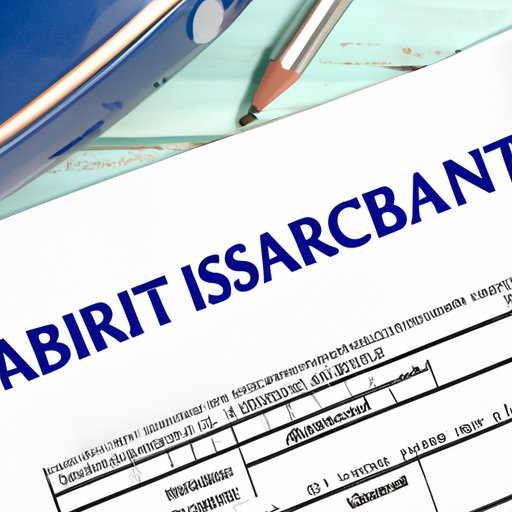Introduction
Boating accidents can be scary and dangerous, but it’s important to know how to respond in case you’re involved in one. Whether it’s colliding with another vessel, experiencing an explosion, or capsizing, accidents can happen at any time. And when they do, it’s important to report them immediately. In this article, we will explore legal obligations and tips to help you respond to a boating accident promptly, including the types of accidents that require reporting, what to include in an accident report, and how to avoid accidents altogether.
Legal Requirements for Reporting a Boating Accident
Reporting boating accidents is required by federal and state laws that dictate how to respond and the obligations for boaters in the event of an accident. For example, the United States Coast Guard (USCG) requires reporting accidents that result in any of the following:
- Someone dies
- Someone disappears from the vessel and their location is unknown
- Someone requires medical attention beyond first aid
- Property damage exceeding $2,000 occurs
These laws apply to all types of boats, including canoes, jet skis, and kayaks.
If a boater does not report an accident when required, they may face penalties such as fines or imprisonment.
Tips for Responding to Boating Accidents
If you’re involved in a boating accident, it’s essential to respond appropriately to ensure everyone remains safe and to have proper documentation of the accident.
- Provide first aid: If someone requires medical attention, administer first aid or call for emergency medical services if the injury is severe. Always make sure you stay safe throughout the process.
- Move to a safe location: If possible, move the vessel to a safe location, such as a dock or shoreline, or anchor it in place.
- Document the accident: Take pictures of damages, If there are witnesses, write down their names and contact information. Ensure accurate documentation of the events helps with reporting the accident later on.
- Report the accident: Report the accident immediately to the USCG or the appropriate local authorities to fulfill your legal obligations.
Types of Boating Accidents that Require Immediate Reporting
Accidents in the water can be disastrous and require prompt reporting. These are some of the types of boating accidents that demand immediate reporting:
Collisions
Collisions between vessels can cause severe injuries or even death. Boaters involved in a collision must report the accident as required.
Explosions
Engine explosions can cause severe injuries or even death to passengers on board in seconds. In case of an explosion, call for emergency help and move away from the vessel as soon as possible.
Capsizing
If your boat capsizes, it’s essential to remain calm and wait for rescue. Once everyone is safe, move on to the documentation process and report the accident immediately.
Other Types of Accidents
Accidents such as someone falling overboard, getting hit by a boat, grounding, or flooding, are all incidents that must be immediately reported.
What to Include in Your Accident Report
Accident reports must include precise information regarding the date and time of the incident, names, and contact details of boat operators, passengers, and witnesses, as well as any relevant details about the vessels involved in the accident.
Consequences of Failing to Report a Boating Accident Immediately
Failing to report a boating accident immediately can result in severe legal ramifications such as fines or imprisonment. For example, if a boater doesn’t report an accident and someone dies, they may face criminal charges. Reporting any accident immediately is a legal obligation.
Moreover, prompt reporting ensures proper documentation is completed, which can help both parties in case of an insurance claim or legal proceedings later on.

How to Avoid Boating Accidents Altogether
It’s important to learn and maintain safe boating practices to prevent accidents altogether. Here are some tips:
- Take a boating safety course: Completing a boating safety course helps boaters learn how to prevent and respond to accidents.
- Keeping a proper lookout: Keeping a keen lookout for other vessels or obstacles ahead of you is essential in avoiding collisions.
- Always carry enough safety equipment: Always have safety equipment such as personal flotation devices and fire extinguishers to reduce the risk of injury in case of an accident.
Conclusion
When it comes to boating accidents, emergencies can happen at any moment, and the key to avoid further complications is to report them immediately. Legal obligations require prompt reporting to avoid legal charges. Following the tips mentioned above and maintaining safe boating practices can help prevent accidents and ensure everyone remains safe out on the water.
(Note: Is this article not meeting your expectations? Do you have knowledge or insights to share? Unlock new opportunities and expand your reach by joining our authors team. Click Registration to join us and share your expertise with our readers.)
